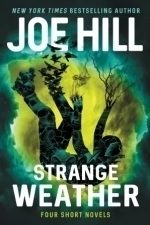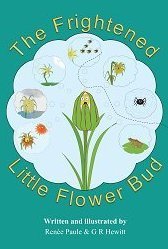
Weight Loss Assistant
Health & Fitness and Lifestyle
App
Weight Loss Assistant is for women who are eager to know how to lose weight fast and need 100% ready...
Haley Mathiot (9 KP) rated Lips Touch: Three Times in Books
Apr 27, 2018
Genre: Young Adult, paranormal/fantasy, romance
ISBN: 9780545055857
Published: October 1st 2009 by Arthur A. Levine Books
Rating: 5
Three stories. Three kisses, all with horrible—or wonderful?—consequences. Goblins hunt girls who long for what they don't have. The most beautiful voice can't be heard, even by a lover, or all who hear it will die. A young girl has been thrown into something she never chose, for a reason she doesn't know, with memories that aren't her own. Welcome to paranormal love.
These stories were fantastic. There were three things that stuck out about them:
1. None of them had happyland syndrome (description of Happyland Syndrome here: http://haleymathiot.blogspot.com/2010/06/unique-phrases-call-for-definitions.html) endings where everything wraps up perfectly. In fact only one of them ends at the end of the story: the others solve the main conflict and wrap up nicely. Taylor didn't have to write all the way to the end because I knew what was going to happen and was satisfied exploring the rest in my mind.
2. They pulled me into the story with the first sentence. There was no "I'm going to give this a try and maybe it'll be worth reading." No, it was enchanting and enticing from the first word, and it was because of the creativity in the prose and the language.
3. Great writing. Beautiful intricate descriptions that stuck with me and gave me the feelings Taylor wanted me to have—whether they be enticing and sensual, or terrifying and upsetting.
Here are my thoughts on the individual short stories:
Goblin Fruit
Really?… Wow… why was that so good even though it had a horrible ending?… and was it really that horrible? Yes, it really was. I had to double check and make sure that it really was the end! I'd been wondering for a while 'can an author write a good book with a good ending that isn't happy?' answer, Yes. Laini Taylor can.
Spicy Little Curses Such As These
This story was horrid and sweet at the same time. I had a thought of how the story would end, but the ending turned out to be much different. It wasn't perfect, but it was perfect enough to leave me smiling and feeling satisfied for the characters.
The Hatchling
I could not visualize how this story would have a happy ending, and it certainly wasn't perfect—there is one character whom I still fear for her sanity. But I was so amazed an the unwinding of the mysteries and secrets of the plot and was more pleased than I thought I would be with the conclusion.
For wonderful writing, creativity, and fantastic characters, I give this one five stars and two thumbs up—get it, first chance you can.
Content/recommendation: Ages 15+ for some language, little sensuality. No explicit violence or language, no sex.
This review is copyright Haley Mathiot and Night Owl Reviews 2010. Original Review: http://haleymathiot.blogspot.com/2010/10/review-lips-touch-three-times.html
Acanthea Grimscythe (300 KP) rated Strange Weather in Books
May 16, 2018
SNAPSHOT
“Snapshot,” though a bit lacking in style, is one of two stories in this small collection that I found myself capable of tolerating. I figure it’s because this short tale embodies a sort of Twilight Zone and Night Gallery feel. It read the quickest out of the four stories and I found myself nearly in tears at its conclusion, so the best I can say about it is that I either felt something, or my emotions went bonkers again.
LOADED
The second shorty story in Hill’s collection, “Loaded,” is a bunch of driveling bullshit, for lack of a better word. I’m all about our Second Amendment Rights; I even have a cup that says “Don’t ban guns, ban idiots,” but this story encompasses the stereotypical idea that every gun owner or enthusiast is a batshit crazy blowhard that’s just looking for a reason to go off. I have friends and family that appreciate this machinery, that agree people should under go background and mental wellness checks prior to purchase of a fire arm, but this? This story just adds fuel to a fire that seeks kindling via blame on inanimate objects, rather than the person behind them. The main guy of “Loaded” shows us exactly how restricting gun ownership will fail so hey, better hurry and make it entirely illegal right? Oh, and let’s not get started with the over-saturation of Social Justice Warriorness in this piece. I’m all for equality, but this? This just reeks of extremism in a way that I almost abandoned the book as a whole.
ALOFT
“Aloft” is by far the best in this collection of short stories. An embodiment of the collections title, the main character encounters something unusual while fulfilling a dead friend’s promise and from there, things really take a turn for the bizarre. While I feel Hill gives us a bit too much exposition in this tale, there are many things about it that I feel should be appreciated. For instance, the next time anyone asks me what it’s like to have ulcerative colitis, I’ll probably ask them if they’ve read “Aloft”‘ by Joe Hill, because let’s face it: the torment Aubrey goes through gastrically (is that even a word?) in this story is a pretty damned accurate depiction of the suffering people with Crohn’s and Colitis endure.
RAIN
The final story in Hill’s collection seemed like it could have had a loft of potential. “Rain” further supports the title of the collection when a torrent of crystal nails fall from the sky to impale poor, unexpecting citizens. So what’s the problem then? “Rain” is so fundamentally flawed that it’s just… no. First, Hill is more obsessed with making fun of Trump in this story than the events that occur. This isn’t a bad thing – I absolutely loathe Trump, especially considering his policies may very well shorten my lifespan significantly. “Rain” is more a mockery than the story it could be. At least the twist at the end was fairly amusing, but by that point all I could do is roll my eyes in frustration.
CONCLUSION
Joe Hill’s Strange Weather is probably a poor choice for first time introduction to his work. In fact, it’s almost a deterrent considering it’s the first book by him that I read and I was ecstatic about receiving a review copy. It is with a bit of a heavy heart for the sake of disappointment that I am forced to conclude my review with a largely poor rating. Part of my compliance with FTC guidelines as a reviewer requires that I disclose when I read a free book in exchange for an honest, unbiased review. In this case, I’d like to thank Edelweiss and HarperCollins/William Morrow for this opportunity.
Overall, the book feels pretty real and authentic. You quickly get an idea of the kind of person Anna seems to be--kind, funny, talented, and perhaps a little insecure. I'll admit that since I started listening to Anna's podcast, I've felt a kinship to her, and my review is obviously influenced by that. She's so down-to-earth and really damn funny on her podcast. I also love the idea that she lived in her head for much of her childhood, making up stories (it sounds a little familiar, you see). If you like Anna's podcast, it will be hard not to enjoy her book, although some of the chapters and stories will sound a bit familiar if you're a faithful listener.
My love of Anna was only deepened by reading her book, which is quite readable and broken into simple, short chapters. We get glimpses into Anna's childhood, her first big relationship, a little insight into her big break with "Scary Movie," and more. I relate to her on so many levels. We're both fascinated by other people's lives; never had a big group of female friends; have no patience for small talk; are not wedding people; possess an emotional defense built up from our parents; and enjoy calling the numbers on vehicles to report about truck drivers' good driving. She just happens to be a lovely, famous, wealthy actress, and I'm um, well, yes. Otherwise, we're the same, right? ;)
Of course, the elephant in this review is Anna's recent split from her husband, Chris Pratt, who wrote the foreword to the book, which was apparently revised somewhat for publication. It's hard not to psychoanalyze Anna in light of her recent marriage breakup. You read about her self-admitted inability to admit failure and her tendency to jump from one relationship straight to the next. So much of the book is about Chris and their relationship, and it's a shame that it's a distraction from an enjoyable memoir about a really smart and talented woman, who should stand on her own merit, apart from her (soon-to-be-ex) husband. It's also heartbreaking to read these chapters where it sounds like they truly love each other--and where they got through the premature birth of their son together--and know they are no longer married.
Overall, this is a fun, easy-to-read memoir. If you like Anna, her films, or her podcast, you'll probably enjoy this one. It's a quick read, full of lists, humorous moments, and short chapters, although there are definitely serious pieces, too. It really only made me like her more. 3.5+ stars.

Writers' Forum Magazine
Book and Magazines & Newspapers
App
Writers’ Forum is the markets leading title for writers. Every issue features special interviews...
ClareR (6054 KP) rated Unclean Spirits (Gods and Monsters #1) in Books
Feb 20, 2018 (Updated Feb 20, 2018)
Carson had lost his life five years previously to Eros’ whims, and his wife and son hate him. He goes on a journey with Frank (who is frankly, a horrific character) to find out why this is. It’s a ‘100mph’ book: non-stop action pretty much, and if you like Gods (and monsters!) you’ll like this. It has a very dark, menacing atmosphere: dirty, unclean, violent. I enjoyed it! There was a bit (a huge!) twist at the end.
I also enjoyed the short story at the end by Pat Kelleher (Drag Hunt) featuring Coyote. This story isn’t set completely in the US, but does start there and ends in London and it’s environs. Coyote has lost a rather important part of himself, and is determined to find it. A very enjoyable story, again, with a great selection of Norse, Celtic, Egyptian and other Gods that I have probably forgotten in it! I find myself very much enjoying these stories with Coyote in. He’s very much the Loki of the North American native people. Got to love a trickster!
Thanks to Netgalley and the publisher for my copy of this book!
Ivana A. | Diary of Difference (1171 KP) rated The Frightened Little Flower Bud in Books
Jul 10, 2018
I was lucky enough to win The Frightened Little Flower Bud on a giveaway from Booklikes, and I couldn’t be happier! This is a short, cute story about one flower, and the process of how it blooms.
Before it blooms, it has many fears as to what is going to happen, it fears that the sun will dry it, and the rain will drown it, and that it won’t be as beautiful as the other flowers out there.
It reminds me of the fears that us people have every day before we go out of the door. We fear this and that, without realising to enjoy our lives, and live them like they are our last. A perfect description of how fear and doubt can let us down, but also a perfect example of what happens when you actually get the courage and go out there, and realise that yes - you can be the prettiest flower out there.
I liked how there are questions at the end of the books, to engage the little readers after reading it. However, in all honesty, I believe that the images inside the books won’t keep a kid there for very long, and they might not be the most exiting this in the world.

Stirling to Essen: The Godmanchester Stirling: A Bomber Command Story of Courage and Tragedy
Book
On 11 April 1942, a stricken Short Stirling Royal Air Force bomber crashes into fields to the east...

Between Here and Knitwear
Book
Beginning in Lancashire in the '60s and '70s, they follow a young girl as she becomes aware of what...





